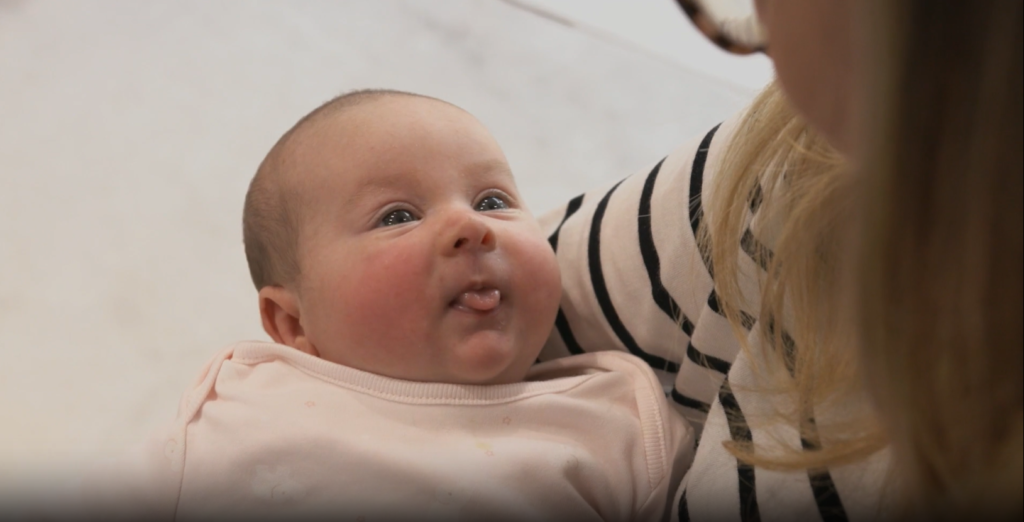Spotlight
Six things you didn't know about babies' mental health (from a Clinical Psychologist)
10/06/2024
Dr Hazel Douglas MBE

The mental health of babies is an often overlooked but incredibly important aspect of their overall development. Research has shown us that the foundations for emotional wellbeing and resilience are laid down in the first six months of life. Here are six fascinating insights into babies’ mental health that you might not know!
1. Babies are social beings from birth, born ready to learn
From the moment they are born, babies are ready to connect with the world around them. Despite their undeveloped brains, which are roughly only half the size of an adult’s, newborns are remarkably social. They make connections in their brain at an astonishing rate—about a million per second—processing everything they see, hear, smell and touch. These early social interactions are crucial for their emotional and cognitive development.
2. Early relationships teach physical and emotional regulation
The relationships babies form in their first few months are truly fundamental. The close contact they have with their parents teaches early regulation both physically and emotionally. The familiar heartbeat, voice, and touch of parents is calming and reassuring, while responsive interactions help infants learn to feel confident, playing a significant role in shaping their emotional health.
3. Friendly faces matter
A newborn’s senses are undeveloped but they are ready to learn to grow. Initially, vision is quite limited: babies can focus on faces and objects close to them, which helps them begin to learn. These sensory experiences send electrical impulses through their brain, fostering its growth and development. These early sensory interactions are fundamental in building the neural connections that underpin emotional regulation and cognitive abilities.
4. Early communication interactions helps shape language development
Most babies are ready to communicate from birth, as long as they are healthy and not premature. They use subtle cues like nuzzling or sticking out their tongue to indicate hunger and other needs. Furthermore, as they start to experiment with sounds they can make, positive responses from caregivers encourage babies to continue interacting, reinforcing neural connections and the start of language development.
5. Relationships are the best food to fuel growing brains
The interactions babies have with their caregivers literally help grow their brains. Positive, responsive interactions encourage the development of the cerebral cortex, the part of the brain responsible for communication, emotional regulation, and learning. Relationships act as brain food, providing the stimulation needed for these areas to develop properly. Without these interactions, babies might experience slower development and potential behavioural issues later in life.
6. Brain’s need relationship food to keep them healthy throughout life
While the first six months is the most rapid period, brains continue to grow, reshape and develop throughout our lives. Engaging in new experiences, learning new things, and maintaining strong social connections are essential for brain health at any age. The to-and-fro of communication and relationships is beneficial throughout our entire lifespan and the rupture and repair is essential too – it’s never too late to nurture good emotional health in your relationships!
Understanding these aspects of babies’ mental health highlights the importance of early experiences and relationships. By nurturing these early connections and providing a stimulating environment, we can support the development of healthy, kind and hopeful adults . The first six months are not just about physical growth but also about laying the groundwork for lifelong mental and emotional wellbeing.
To learn more about your baby’s emotional needs and development, follow one of our antenatal or postnatal courses on inourplace.co.uk.

Dr Hazel Douglas MBE
Clinical Psychologist and Child Psychotherapist. Director of the Solihull Approach
For media enquiries, please contact Samantha Williams, Head of Marketing and Communications, samantha.williams@uhb.nhs.uk | +44(0)7500817702
